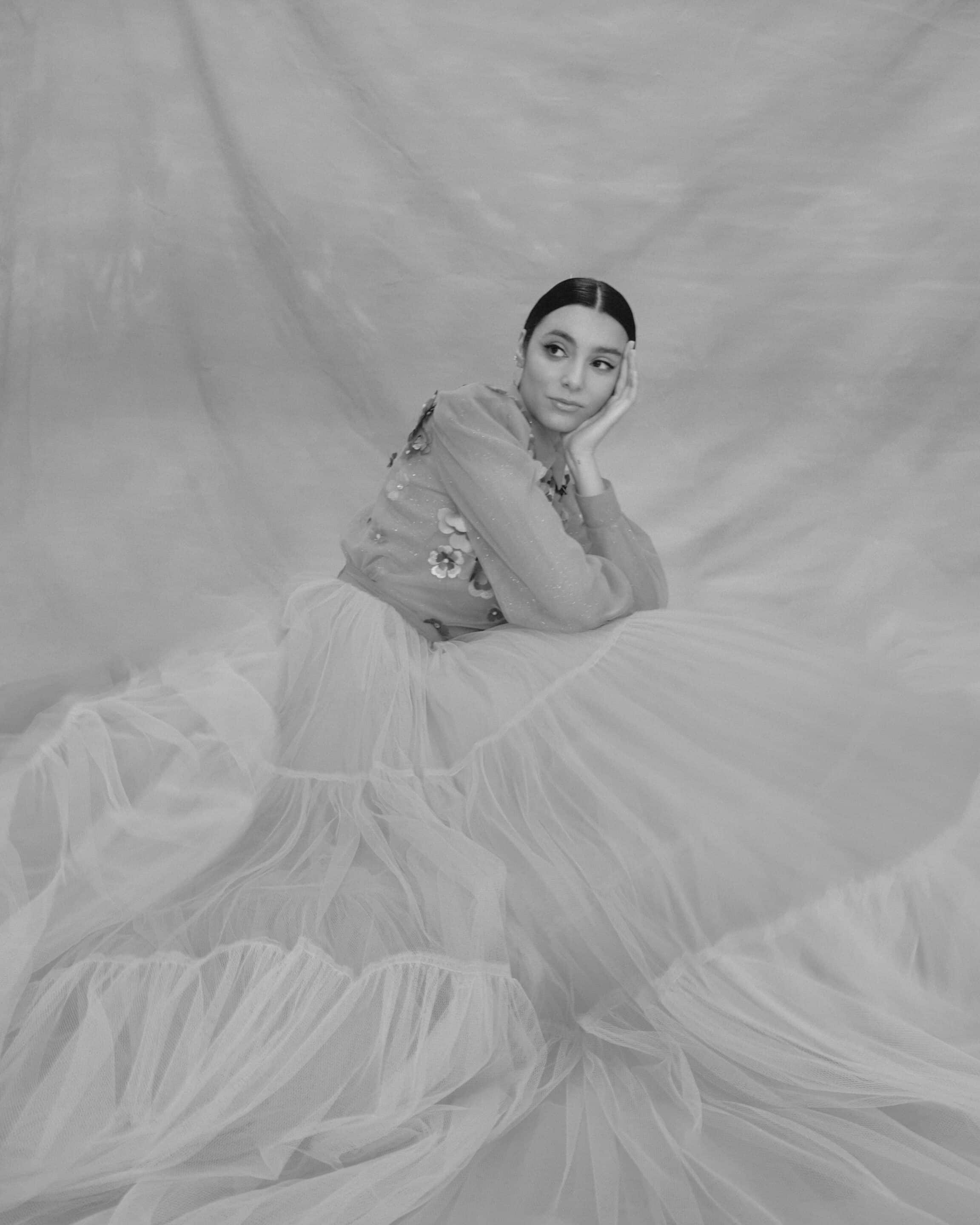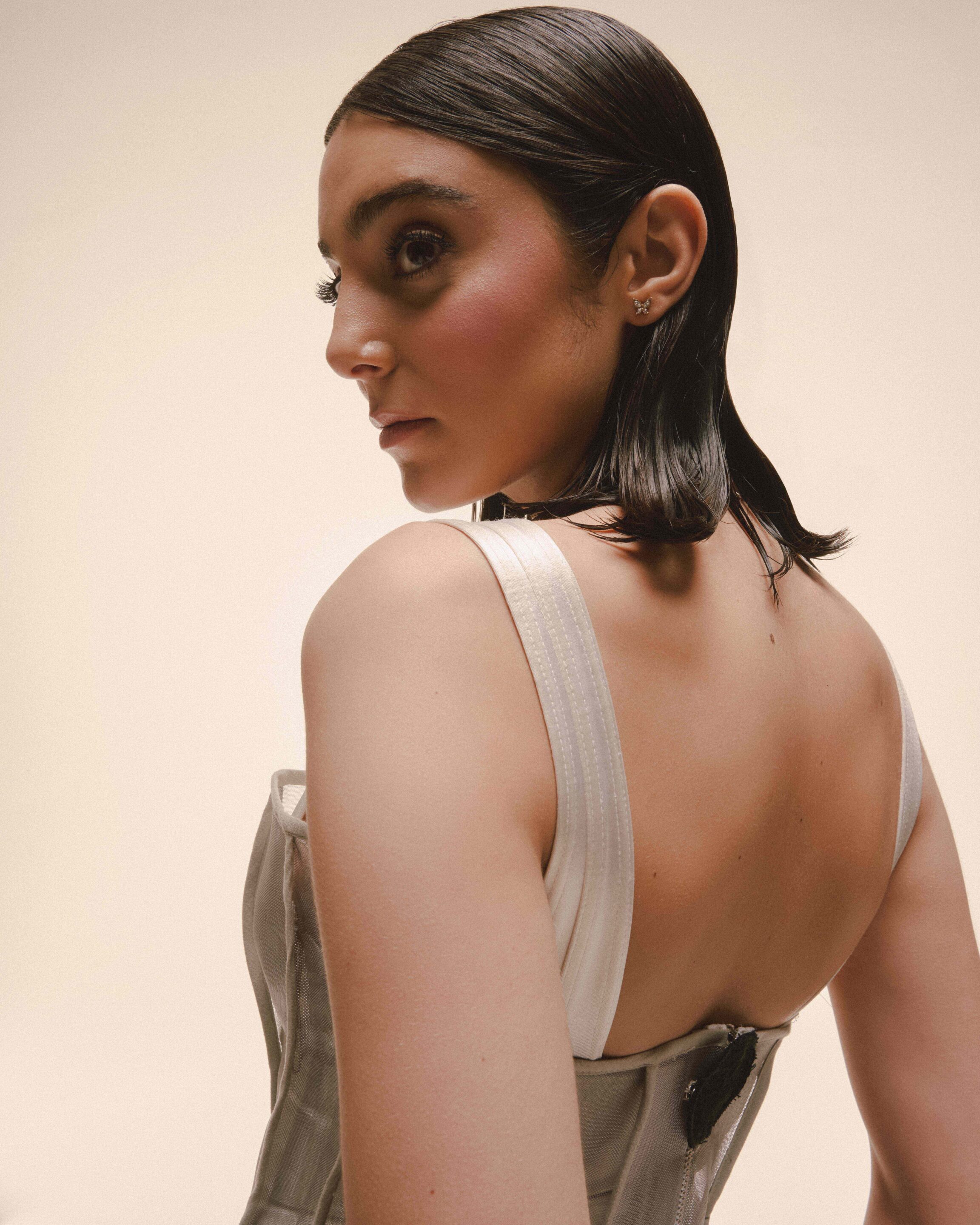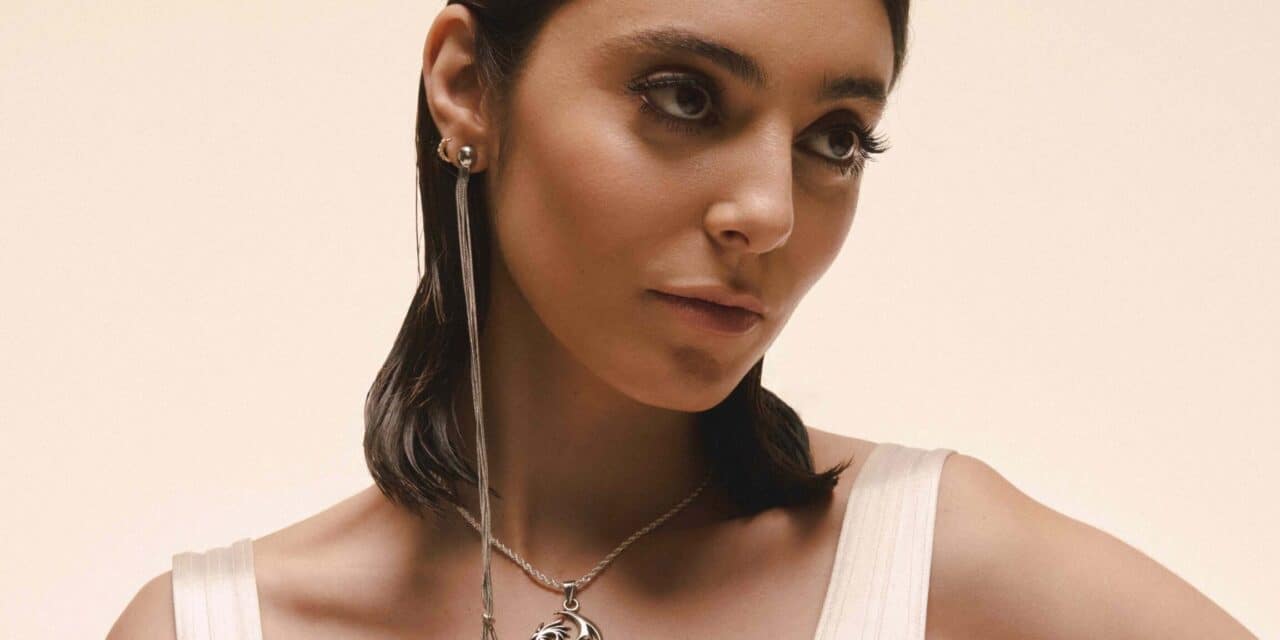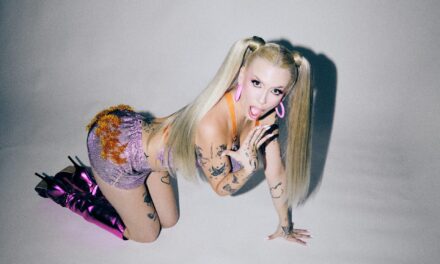Following the success of her last two singles ‘Emotions’ and ‘Happy’, and critical acclaim from the likes of MTV, Rolling Stone Africa, iHeartRadio, GQ South Africa, and Wonderland, London-based Zimbabwean singer, songwriter and musician ANANYA returns with ‘ALL THAT GLITTERS ISN’T GOLD’, her most introspective and emotionally resonant release yet. Serving as her first offering of 2025, the indie-pop confessional unpacks themes of broken trust, disillusionment, and the quiet strength that comes with seeing things as they truly are. Wrapped in melancholic melodies, poetic lyricism, and ethereal production, the track embodies both the sting of betrayal and the power of reclaiming one’s worth. Ananya’s delicate yet commanding vocals float between heartbreak and resilience, mirroring the painful yet liberating realization that not everything that sparkles is meant to last.
‘All That Glitters Isn’t Gold’ began as a stripped-back piano melody before evolving into a richly textured sonic journey. The track’s unconventional structure mirrors its message – building tension only to crash into silence, symbolizing the weight of unspoken truths. Speaking about the song’s meaning, Ananya explains, “Some lessons hit harder than others. This song is one of those realizations that lingers for a while after the moment’s gone. It’s about looking back at something (or someone) you once thought was special, only to see the cracks you ignored. There’s frustration, disappointment, and that sting of knowing you gave too much. But more than that, there’s a quiet strength in pulling back, in choosing yourself. The song builds and builds, almost like a confrontation waiting to happen, only to crash down at the end – no dramatic finish, just the weight of reality settling in”.
“Your new single ‘All That Glitters Isn’t Gold’ explores themes of broken trust and disillusionment. What inspired you to write about these emotions, and how did the creative process unfold?”
All That Glitters Isn’t Gold was inspired by the realization of ignoring red flags for too long. It’s about looking back and seeing things more clearly, questioning why I held on, even when the signs were there. This song explores the huge gap between illusion and reality and the moment when everything finally clicks. At that point, you have no choice but to face the truth. As for the creative process, I started writing it mid-flight.
“You mentioned that the song started as a stripped-back piano melody before evolving into a richer sonic experience. Can you walk us through how that transformation happened and why you chose to structure it that way?”
Initially, it was my piano and I, which felt fitting because the song is so personal. The simplicity of it helped me sit with the emotions and focus on the storytelling. Eventually, I felt it needed to capture the weight of that realization and the shift from illusion to reality. When I worked with Patch Boshell, we started layering in textures that mirrored that emotional arc. The production gradually builds, and as the truth becomes clearer, it suddenly collapses into silence, reflecting that final moment of acceptance.

“The song’s unconventional structure mirrors the emotional tension of confronting painful truths. Was that intentional from the start, or did it develop organically as you worked on the track?”
The song’s structure was made with the intention to reflect the emotional journey of confronting uncomfortable truths. We wanted the music to mirror the internal conflict, the way things don’t always flow smoothly when you’re grappling with deep emotions. As the track developed, the structure evolved organically to amplify that tension, but it always remained a key part of the song’s narrative. We were excited about the shift in energy as the song unfolded, just as the push and pull we feel with accepting hard truths.
“Your lyrics reflect a journey from heartbreak to quiet strength. How did writing and recording this song help you process these emotions in your own life?”
Writing and recording this song was therapeutic for me. It gave me a way to externalize the emotions I was feeling and turn them into something tangible. The process helped me move from the pain and confusion toward a place of quiet strength, like I was finding clarity in the mess. It was a way to reclaim my power, and as I recorded, I could hear the change in the tone of the song. It went from being full of emotion to something more resolved and introspective. It felt like the song itself was healing me.
“You’ve drawn inspiration from artists like Lorde and Gracie Abrams. How have their styles influenced your sound, and how do you balance those influences while maintaining your unique voice?”
Lorde and Gracie Abrams have inspired me with their honest, reflective lyrics and ability to create deep emotional connections through minimalism and subtle production. I admire how Lorde blends simplicity with depth and how Gracie’s vulnerability feels so personal. As long as I’m honest and write for expression and healing, I feel I’ll be able to maintain my voice.
“‘All That Glitters Isn’t Gold’ marks a more introspective and emotionally raw chapter in your music. How does this single set the tone for your upcoming project?”
Acceptance has been a big theme for me lately. I’ve found myself welcoming my emotions more freely instead of trying to fight or overanalyze them. It’s maybe the first time I’ve truly felt my growth, not just understood it intellectually, but actually experienced it emotionally. That shift has brought a lot of clarity and peace to both my personal life and my creative process.

“You’ve had support from major platforms like MTV, Rolling Stone Africa, and iHeartRadio. How has that recognition influenced your confidence and creative direction?”
Ahhh it’s been incredibly affirming. I’m grateful for the recognition, I feel it has given me the freedom to trust my creative instincts more. It’s allowed me to experiment with new sounds and ideas while staying true to the core of my artistry, knowing that authenticity is what ultimately connects with listeners.
“The line about realizing you gave too much feels particularly vulnerable. Was there a specific moment or realization that shaped those lyrics?”
I feel it was a couple of moments that helped shape this outlook. I remember a moment when I recognized that I had invested so much emotionally in something that wasn’t being reciprocated. It was a hard truth to face, but it made me realize how easy it is to lose yourself when you’re constantly giving without boundaries. It was a turning point and capturing that in the song helped me process and reclaim my sense of self.
“You describe the song as ending with ‘the weight of reality settling in’ rather than a dramatic resolution. What message do you hope listeners take away from that quiet conclusion?”
I think sometimes the hardest realizations don’t come with dramatic closure; they just settle in quietly. I hope listeners take away that healing isn’t always a big, sweeping moment; it’s often a gentle shift, a quiet understanding that things may not be perfect, but they’re slowly moving toward clarity. It’s about accepting where you are and giving yourself the space to process. The weight of reality doesn’t always have to feel heavy; it’s simply part of the journey.

“Looking back at your previous singles ‘Emotions’ and ‘Happy,’ how do you feel you’ve grown as an artist leading up to this release?”
I feel like I’m writing music that truly feels like me now. Both Emotions and Happy captured moments of reflection and healing, but this new release feels more grounded and intentional. I’m more confident in my voice, lyrically and sonically, and I’ve leaned into vulnerability in a way that feels empowering rather than exposing. Each release has taught me something, and with this one, I feel like I’m stepping into a more honest, clearer version of who I am as an artist.





